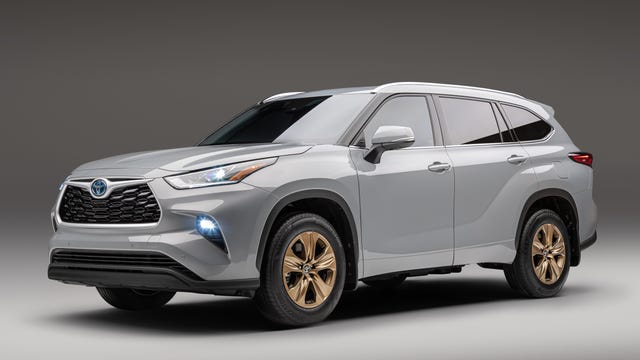Rise by Six: Your Daily Dose of Inspiration
Explore insights and stories that elevate your day.
Hybrid Cars: The Fuel-Efficient Love Child of Gas and Electric
Discover the future of driving with hybrid cars! Uncover how these fuel-efficient beauties blend gas and electric power for ultimate performance.
How Hybrid Cars Work: A Beginner's Guide to Fuel Efficiency
Hybrid cars combine an internal combustion engine with an electric motor to enhance fuel efficiency and reduce emissions. When the vehicle starts, the electric motor can power the car at low speeds, allowing for quieter and more efficient operation in urban settings. As speed increases or when additional power is needed, the internal combustion engine kicks in. This dual approach not only improves fuel economy but also allows for regenerative braking, which captures energy usually lost during braking and stores it in the battery for later use.
One of the key benefits of hybrid cars is their fuel efficiency, which is achieved through innovative technologies that optimize energy use. For example, many hybrids use a start-stop system that turns off the engine when the car is stationary, saving fuel when idling. Additionally, advanced monitoring systems assess driving behavior and road conditions to improve overall performance. As hybrid technology continues to evolve, these vehicles are becoming more accessible, offering benefits not just for the environment, but also for drivers looking to save on fuel costs.

The Pros and Cons of Owning a Hybrid Car: Is It Right for You?
Owning a hybrid car comes with a unique set of advantages and disadvantages that can significantly impact your driving experience and lifestyle. One of the primary benefits is fuel efficiency; hybrid vehicles utilize a combination of gasoline and electric power, which often results in lower fuel costs and fewer trips to the gas station. Additionally, many hybrid cars emit fewer emissions, making them a more eco-friendly choice, which is appealing to environmentally conscious drivers. Furthermore, certain government incentives and tax breaks are available for hybrid ownership, enhancing their overall value.
However, there are also drawbacks to consider. The initial purchase price of a hybrid car is typically higher than that of a conventional vehicle, which can deter potential buyers despite long-term savings on fuel. Maintenance and repair costs can also be elevated due to the complex technology that hybrids utilize, particularly with their battery systems. Moreover, if you frequently drive short distances, you might not fully benefit from the fuel economy that hybrids are known for. Thus, it’s essential to weigh these factors carefully to determine whether a hybrid car is indeed right for you.
Electric vs. Gas: Which Hybrid Technology Reigns Supreme?
When it comes to choosing between electric and gas hybrid technologies, enthusiasts often debate which option reigns supreme. Electric hybrids are lauded for their energy efficiency and reduced emissions, offering a cleaner alternative that appeals to environmentally conscious consumers. Additionally, with advancements in battery technology, electric hybrids have become increasingly capable of longer ranges and quicker charging times. In contrast, gas hybrids provide the reliability of traditional combustion engines while still contributing to lower fuel consumption and emissions compared to purely gasoline-powered vehicles. Both technologies have their strengths, but the choice ultimately depends on individual driving habits and lifestyle considerations.
One must also consider the cost-effectiveness and maintenance of both options. Electric hybrids, while sometimes initially more expensive, can save drivers significant money on fuel over time and often require less maintenance due to fewer moving parts. On the other hand, gas hybrids can be more accessible in terms of service and availability of parts, making them a pragmatic choice for many buyers. As the automotive landscape evolves, it becomes increasingly clear that both electric and gas hybrid technologies have unique advantages and drawbacks, and quite possibly, the best choice is not a matter of one technology reigning supreme, but rather a harmonious blend of both to suit diverse consumer needs.